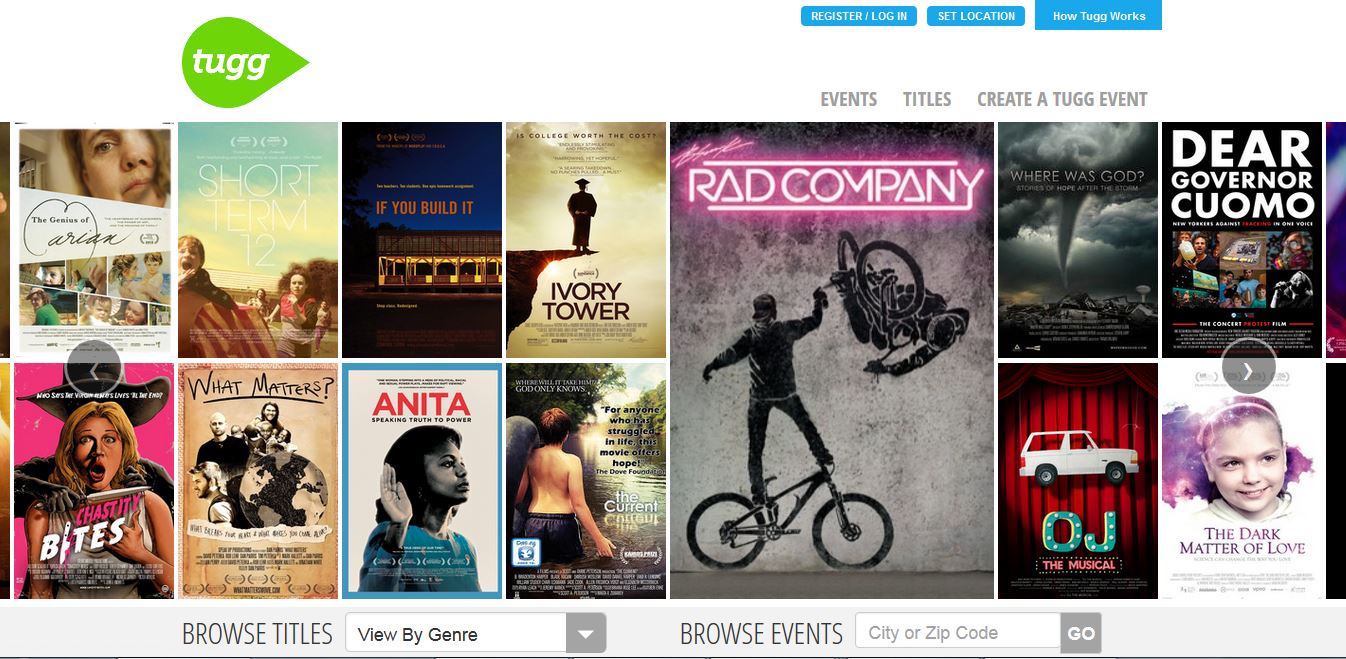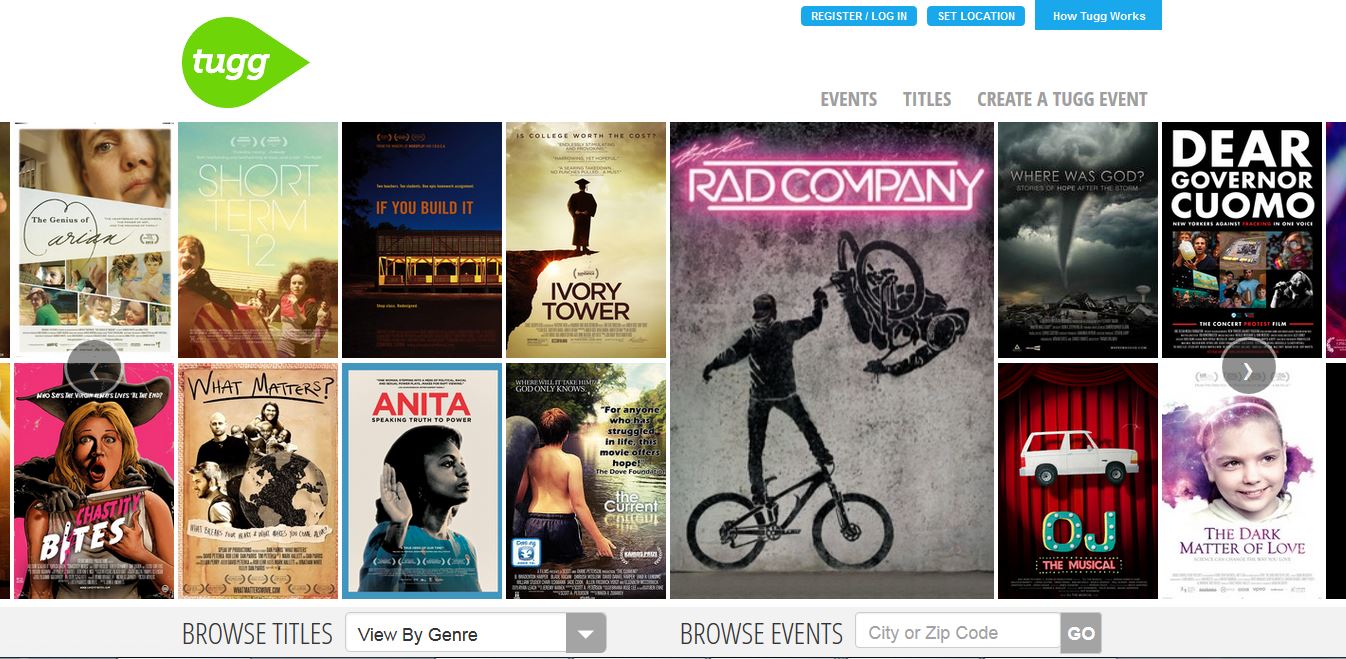Tugg’s Film Library (http://www.tugg.com/)
The process of acquiring the correct licenses and finding the films to host a movie screening can be daunting for small organizations and private individuals, even more so when those movies are small releases of independent filmmakers. However, movie screenings are a great audience engagement tool, and with the proliferation of digital production processes, quality independent films that address almost any issue or topic can be found. Offering an experience that can’t be replicated while promoting the work of emerging artists are some of the main reasons that make this process worthwhile.
In the U.S, rights to present movies from major film studios can be obtained through Swank Motion Pictures and Criterion USA, the two largest film licensing companies in the nation. A third option that caters to independent films and grass roots organizations was launched at SXSW in 2012. Tugg functions mostly as an intermediary between independent filmmakers and their audiences, making it easy for movies to be shown in theaters and alternative venues. Its format makes it valuable for organizations that do not have an appropriate venues or filmmakers looking to increase their exposure.
How does it work? Tugg offers a library of more than 1,400 titles from studios and independent filmmakers that can be screened on-demand at movie theatres across the country. Those who host the screenings are called promoters and it is up to them to pick the films and decide if they want to host a one-off event, a screening series, or even a small festival. Filmmakers can be promoters for their own movies and can contact Tugg to get them into the library, allowing Tugg to program a film on their behalf but retaining all theatrical rights.
When creating an event, the promoter chooses from a variety of venues. In Pittsburgh, for example, a screening can be hosted at The Manor, a neighborhood theatre that screens mostly independent, foreign, and documentary films, or at AMC Lowes 22, a large multiplex that screens mostly commercial feature films. Once the promoter submits its request, Tugg checks for any scheduling conflicts and either confirms the date or provides alternative options. (Because most theaters are busy with their regular schedules, Tugg events are more likely to happen during a weekday.)
Creating a Tugg Event
When an event date and venue are confirmed a Tugg Event Page is created, where attendees buy tickets and promoters access ticket sale analytics and communicate directly with attendees. Much like Groupon, Tugg screenings are dependent on meeting a certain threshold of attendees, meaning that a minimum number of tickets have to be sold in order for the event to take place. If the threshold is not met, neither the attendees nor the promoter will be charged and the event will be cancelled. It is the responsibility of the promoter to attract a sufficient audience but Tugg does offer some helpful outreach toolkits. This business model is particularly attractive for grassroots organizations that can make up for their lack of funds with strong community relationships.
A promoter receives 5% of the revenue from ticket sales; the rest of the income covers the content owner fee, the theater rental fee, shipping costs, and Tugg’s 20% margin. By setting the attendance threshold, and eliminating some of the risk of a low turnout, Tugg ensures that no party loses money with its screenings. Within the event page, promoters are able to sell merchandise or fundraise and are also able to sponsor or subsidize some or all the tickets for an event.
For theatrical screenings, Tugg takes care of all event logistics, including shipping the film and reserving the venue. There is also an option to host events in nontraditional settings such as community centers, museums, and hospitals, which might be especially interesting to people working for a particular arts organization. For these types of screenings a promoter can acquire a license that varies in price depending on the movie, the organization type, whether the tickets will be free or have a cost, and the expected number of attendees. Tugg will then ship the materials and the promoter will be responsible for the rest of the logistic needs. Not every film in Tugg’s library is eligible for this type of show, but the ones that are can be found here.
Hosting a film screening through Tugg allows organizations and individuals to concentrate on organizing added value components such as Q & A’s while making sure that they are complying with all copyright laws and presenting movies in an adequate venue. However, the number of films currently available through Tugg is still limited. If Tugg continues to increase the number of films in its library, especially ones that cater to niche audiences, it will surely become a platform to close the gap between audiences and filmmakers.



